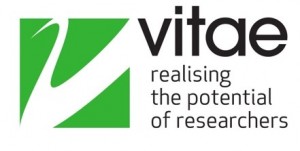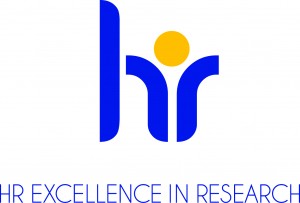What is the aim of BRAD? The BU Researcher/Academic Development (BRAD) programme is a tailor made framework of development sessions for you, our BU researchers, based on the Vitae Researcher Development Framework (RDF). This holistic framework provides professional and personal development in the key areas of:
A. Knowledge & Intellectual Abilities
B. Personal Effectiveness
C. Research Governance & Organization
D. Engagement, Influence & Impact
How did we consult you in creating BRAD ? A poll was posted on our blog to explore which training areas you would like us to host and this was followed by an online survey to explore the training needs of early career researchers (ECRs) in particular. The results concluded you would like training in a wide range of development areas from specific methodology to an academic career path. Feedback also clearly said sessions should be about two hours and that Wednesdays were the preferred date for sessions and the framework follows this structure. There are a few sessions which run for longer than two hours and this is because of the subject matter.
 What kind of sessions are we running? The programme comprises of a wide range of facilitated development sessions held on campus (by internal and external presenters), online research modules from Epigeum (so you can learn in your own time) and the Vitae’s RDF. The facilitated sessions cover everything from research skills to personal effectiveness, from using SPSS to creating impact through your research. The online training covers a range of topics from getting published to managing your research career which you can undertake at your own time. You can identify which sessions to attend by undertaking the simple ‘My Academic Development Needs: Self-Assessment’ (MADNSA) or use Vitae’s jazzy Excel version which is more detailed. You can read case studies of real academics to see how using the planner based on this assessment has helped transform their careers if you still need a little convincing to complete this and also the top 10 tipsfrom researchers on using the framework.All academic staff at BU have access to this programme and you can attend whichever sessions you are interested in; you don’t have to attend the whole programme. For facilitated sessions, just book through the Staff Development webpages and for online modules, simply log into myBU and search the BRAD community to view all courses and to get started!
What kind of sessions are we running? The programme comprises of a wide range of facilitated development sessions held on campus (by internal and external presenters), online research modules from Epigeum (so you can learn in your own time) and the Vitae’s RDF. The facilitated sessions cover everything from research skills to personal effectiveness, from using SPSS to creating impact through your research. The online training covers a range of topics from getting published to managing your research career which you can undertake at your own time. You can identify which sessions to attend by undertaking the simple ‘My Academic Development Needs: Self-Assessment’ (MADNSA) or use Vitae’s jazzy Excel version which is more detailed. You can read case studies of real academics to see how using the planner based on this assessment has helped transform their careers if you still need a little convincing to complete this and also the top 10 tipsfrom researchers on using the framework.All academic staff at BU have access to this programme and you can attend whichever sessions you are interested in; you don’t have to attend the whole programme. For facilitated sessions, just book through the Staff Development webpages and for online modules, simply log into myBU and search the BRAD community to view all courses and to get started!
Who can be part of BRAD? Any BU academic member of staff can sign up to the BRAD programme; there is no commitment required as to the number of sessions you undertake. We simply want to keep a record of those who are taking part in some of the BRAD facilitated and online sessions, so we can get your feedback on how useful they were. You will be automatically added to the list when you sign up for a session with Staff Development.

















 BU attendance at third annual GCPHR meeting in June
BU attendance at third annual GCPHR meeting in June Interactive Tangible and Intangible Heritage Applications – BU student work featured in new book chapter
Interactive Tangible and Intangible Heritage Applications – BU student work featured in new book chapter Second NIHR MIHERC meeting in Bournemouth this week
Second NIHR MIHERC meeting in Bournemouth this week MSCA Postdoctoral Fellowships 2025 Call
MSCA Postdoctoral Fellowships 2025 Call ERC Advanced Grant 2025 Webinar
ERC Advanced Grant 2025 Webinar Horizon Europe Work Programme 2025 Published
Horizon Europe Work Programme 2025 Published Horizon Europe 2025 Work Programme pre-Published
Horizon Europe 2025 Work Programme pre-Published Update on UKRO services
Update on UKRO services European research project exploring use of ‘virtual twins’ to better manage metabolic associated fatty liver disease
European research project exploring use of ‘virtual twins’ to better manage metabolic associated fatty liver disease